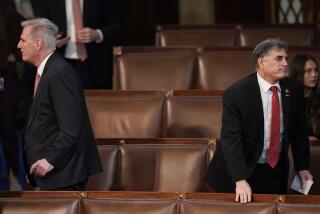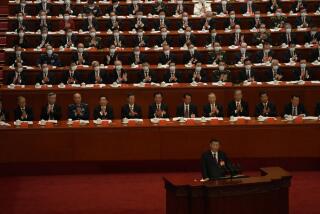Soviet Party No Longer Will Be the Only Forum for Policy Decisions
- Share via
MOSCOW — The Soviet Communist Party reversed 70 years of history this week when its policy-making Central Committee voted after three days of heated debate to yield its constitutionally guaranteed monopoly on power. The action has raised a number of questions. Question: Why is the Soviet Communist Party giving up power? Answer: It really doesn’t want to give up power. But the country’s political and economic crisis have brought it to the realization that it must share power in order to win the broadest possible support for the difficult national restructuring effort still ahead. Q: How does it plan to do that? A: Mainly by getting out of the business of running the country on a day-to-day basis and leaving that to government officials who will now be elected by the voters rather than appointed by the party. The party still expects to nominate its own candidates for these posts. But it accepts that other parties with more popular candidates and better programs may win. Q: Is that going to increase or decrease the power of President Mikhail S. Gorbachev? A: It will probably increase Gorbachev’s authority in the long run, because the new people will probably be reformers like himself. Many present officials are longtime party apparatchiks who have resisted Gorbachev’s changes. Q: What do Communist leaders mean when they say power will be shifted from the party to the government? A: For 70 years, all policy decisions were made by party leaders, whether at the national, regional or local level; whether in industry, education, culture, or science; whether in the Kremlin or the neighborhood school. It was up to government officials and other bureaucrats to carry them out, no questions asked. Under these new reforms, elected officials will make the decisions in government, managers will make them in industry, and educators, scientists, and maybe even rock music stars will make them in their own fields. And the decisions will be open to challenge. Q: But aren’t all these officials Communist Party members anyway? A: Yes, many are. Until now, the party has been the main forum for political activity in the Soviet Union, and anyone interested in politics, or simply a good job, would join the party. As the party withdraws from direct management of so many aspects of Soviet life, membership will no longer be required of people wanting to get ahead. Q: When will this happen? A: Election campaigns are now under way throughout the country on a regional and local basis, and these are expected to put many new people in office. A significant number of them are likely to be non-Communist. Broader changes will come on a national level when the country’s constitution is rewritten later this year to include the principle of political pluralism. New laws must also be enacted to permit the registration of other political parties, and the next scheduled elections to the national Parliament are not until 1994. So, the whole process is likely to take a long time. Q: Where are these new parties going to come from? A: Many political groups around the Soviet Union, particularly in the smaller constituent republics, already function informally as parties, even nominating candidates. Some of these are likely to form alliances and turn themselves into national movements, such as Social Democratic, Green and Christian Democratic parties. That has not happened yet, however, and the focus for now remains on regional groups. In the Soviet Baltic republic of Lithuania, for instance, the Communist Party has already split in two; four traditional parties from Lithuania’s brief period of independence have reappeared, and environmentalists have formed a Green party. All will have candidates in the republic’s Feb. 24 elections. Q: Are the Communists putting any limits on what kinds of new parties can be formed? A: This will be a key test of Communist sincerity on sharing power. Party officials said they prefer that the new parties be socialist in orientation, but a number of non-socialist and even anti-Communist political movements have been active for two years. Draft legislation is said to require that the new parties respect the Soviet constitution and not attempt to overthrow the existing political system by force. Q: So now what will be left for the Communist Party to do? A : The Communist Party, which has 19 million members, expects to win most of the upcoming elections and retain power for the foreseeable future. Most of its energy will now go into charting a strategic course for the country and mobilizing support for that course. But for the first time, it will have to pit its ideas against those of competing groups, and the people it nominates will have to win their jobs in open, competitive elections. In industry, the party is already yielding its power to appoint managers at most state enterprises. In some cases, chief executives are appointed by new boards of directors, in others they are elected by the workers. Q: Was the Communist Party membership united behind this plan, or is there a chance that conservatives might try to reverse it? A: The party leadership was deeply divided on this and other proposals presented by Gorbachev this week, but in the end, it endorsed them almost without dissent. Those party members who are likely to lose their jobs or have their privileges reduced will no doubt oppose the changes. But barring some major political reversal, Gorbachev appears to have prevailed.
More to Read
Sign up for Essential California
The most important California stories and recommendations in your inbox every morning.
You may occasionally receive promotional content from the Los Angeles Times.













